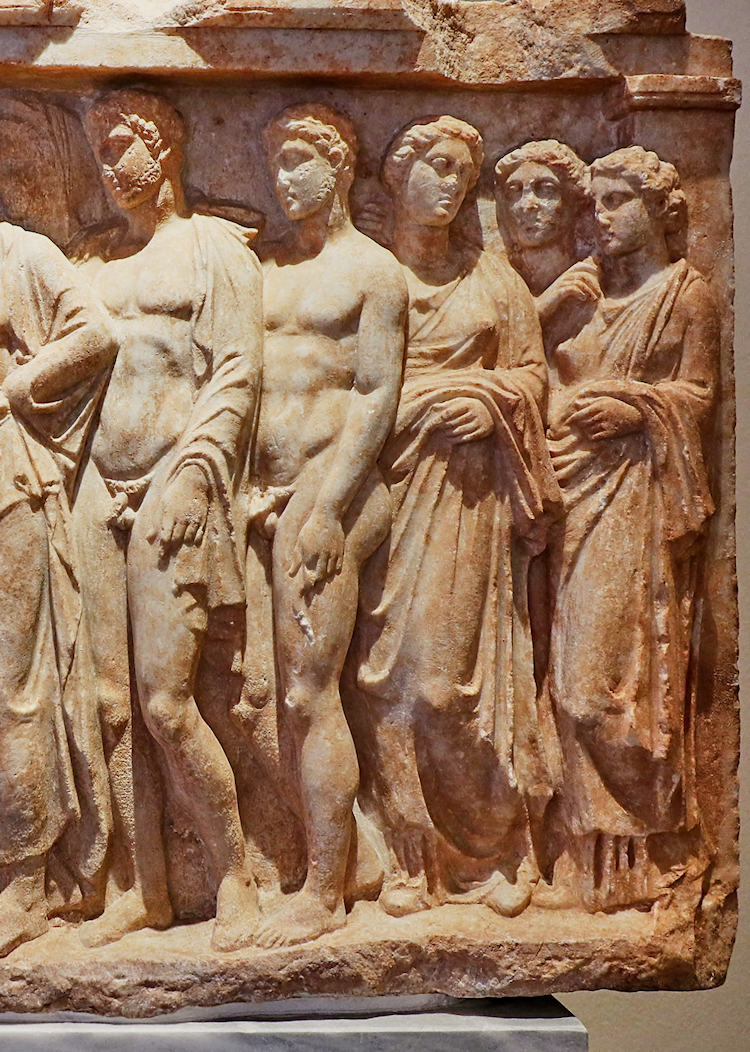"Behind Asclepius are his sons Machaon and Podalirius, and his daughters Iaso, Aceso, and Panacea. A family of worshippers is depicted at the left, leading a sacrificial pig. Their maidservant carrying a hamper covered with a cloth can be seen in the background. Circa 400-350 BCE."
(I really know nothing about this type of beautiful sculptural relief other than, from what I can tell, these objects were intended for devotional or, sometimes, funerary purposes. I found remarkably little about their creation and function online, so I'm only able to include the captions I found attached to each example that I've shared here; I do no more than quote.)
*
*
"Relief from the sanctuary of Artemis at Brauron, Attica, a group of worshipers approaches the goddess attended by a stag, which is one of her characteristic animals. Circa 350 BCE."
*
"Peisis, the wife of Lycoleon. Dedicated 340 BCE."
*
"Funerary Stele Showing a Banquet Scene from Thasos. Circa 480-450 BCE."
*
"Found in New Phaleron, Attica. According to the inscription on the poros base, the relief was dedicated by Xenokrateia to the river-god Kephisos. It depicts thirteen figures in all. Among several divinities, the dedicant presents a child, Xenniades, to Kephisos, who is shown in the center of the relief. At left, Apollo sits on the Delphic tripod, with his feet resting on the omphalos. An eagle stands nearby. At far right, Acheloos is shown as a humanized bull. Circa 410 BCE."
*
"Dedicated by one Aristonike, wife of Antiphates, this is an extraordinary relief, a high quality piece of sculpture depicting an act of religious worship. Shown are three generations of Aristonike's family, plus a slave or servant with a basket carried on their head, approaching the goddess Artemis along with the bull they are going to sacrifice to her, circa 340 BCE."



























No comments:
Post a Comment